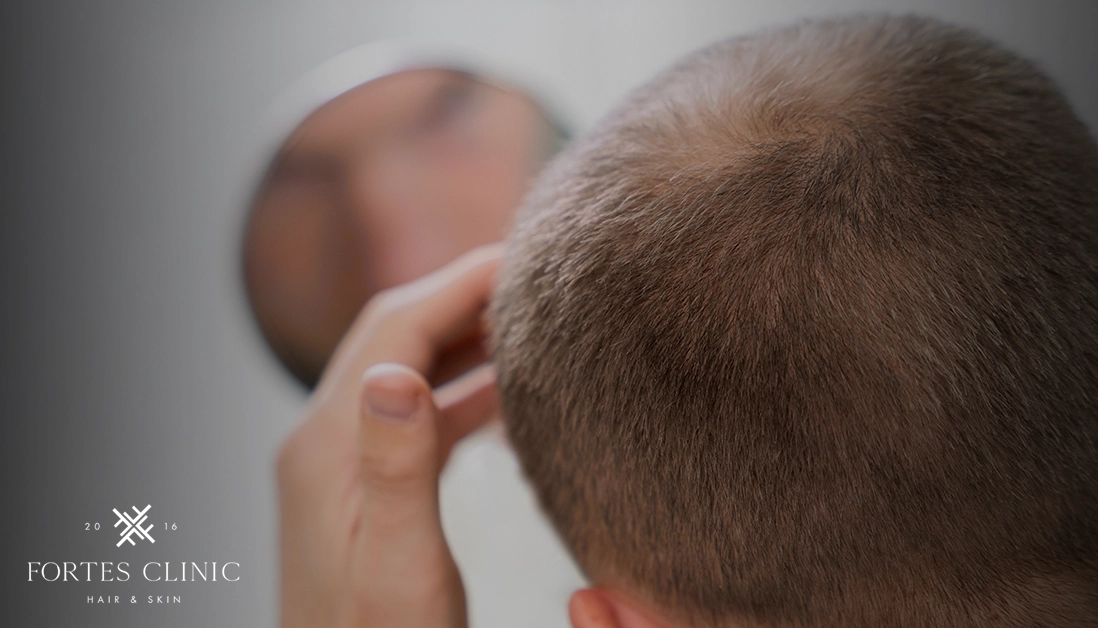Introduction
Stress and hair transplant recovery are closely linked. Undergoing a hair transplant is an exciting step toward restoring hair and confidence. While the procedure itself is highly advanced, many patients are curious about factors that might influence their results. One of the most common concerns is whether stress affects hair transplant outcomes. In this article, we explore the relationship between stress and hair transplant success, how stress can impact recovery, and what you can do to support optimal healing.
Understanding the Hair Transplant Process
A hair transplant involves relocating healthy hair follicles from a donor area, typically the back or sides of the scalp, to thinning or balding areas. Once transplanted, these follicles retain their genetic resistance to hair loss and continue growing naturally. Techniques such as FUE and FUT offer reliable, long-lasting solutions for those experiencing hair loss.
However, while the transplanted follicles are generally robust, the period immediately following surgery is critical for graft survival and overall recovery. During this time, external factors, including stress, can influence the healing process.
How Stress Affects the Body and Hair
Stress triggers a cascade of physiological responses. The body produces higher levels of cortisol, the primary stress hormone, which can lead to inflammation, impaired blood circulation, and a weakened immune system. Over time, chronic stress may contribute to conditions such as telogen effluvium, where hair prematurely enters the shedding phase.
While telogen effluvium primarily affects native hair rather than transplanted grafts, any shedding can make post-transplant results appear less satisfactory. High stress levels can also interfere with the body’s natural healing response, potentially slowing recovery after surgery. This highlights the connection between stress and hair transplant results.
The Critical Early Phase After a Hair Transplant
The first few weeks after a hair transplant are particularly important. During this time, the transplanted follicles are establishing themselves in their new location. Any disruption to blood supply, such as that caused by high stress or poor circulation, can compromise graft survival.
Swelling, inflammation, and delayed wound healing are more likely if the body is under significant stress. These issues can make recovery less comfortable and may affect how quickly new hair growth becomes visible.
Can Stress Cause Transplanted Hair to Fall Out?
Once transplanted follicles have successfully settled and begun producing new hair, they are generally resistant to the effects of stress. These grafts retain their genetic programming from the donor area, which makes them less vulnerable to typical hair loss triggers.
However, significant stress can still cause native hair in surrounding areas to shed, potentially altering the appearance of overall density. In some cases, patients may feel concerned that their transplant has failed when, in reality, it is their original hair that is thinning due to stress-related shedding.
Stress and Shock Loss After Hair Transplant
One phenomenon associated with hair transplants is shock loss, where native or even some transplanted hairs temporarily shed after surgery. While shock loss is usually part of the normal healing process, high stress levels may exacerbate this temporary shedding. Although the lost hair typically regrows, the experience can be unsettling for patients.
By managing stress effectively during the recovery period, patients may reduce the extent of shock loss and support a smoother regrowth phase.
Psychological Stress Before and After Surgery
Preparing for a hair transplant can be an emotional journey. Anxiety about the procedure, recovery, or results can elevate stress levels even before surgery takes place. After surgery, patients may also experience stress as they await visible results.
Managing expectations is an essential part of pre-operative counselling. A reputable clinic will provide realistic timelines and detailed aftercare instructions to help reduce anxiety. For more information on recovery, our article on when you can sleep normally after a hair transplant offers helpful advice.
How to Minimise Stress During Recovery
Fortunately, there are several practical steps patients can take to minimise stress and support healing:
- Prioritise rest and sleep. Adequate sleep allows the body to repair and lowers cortisol levels.
- Maintain a healthy diet. Nutrient-rich foods support hair health, immune function, and tissue repair.
- Exercise gently. Light physical activity, such as walking, can reduce anxiety, but avoid strenuous activity during the early recovery period.
- Practice relaxation techniques. Breathing exercises, meditation, and mindfulness help calm the nervous system.
- Stay informed. Understanding what to expect during each stage of recovery can prevent unnecessary worry.
If you’re preparing for your surgery, see our guide on what to do before hair transplant for more pre-operative tips.
Long-Term Impact of Chronic Stress on Hair Transplant Results
Even after full recovery, chronic stress can still affect overall hair health. Although transplanted hair typically remains stable, untreated stress may continue to impact non-transplanted hair. This can lead some patients to pursue additional treatments or touch-up procedures in the future.
By managing long-term stress, you not only protect your transplant results but also preserve the condition of your natural hair. In some cases, your specialist may recommend complementary therapies such as PRP (platelet-rich plasma) to support ongoing hair health.
Emotional Wellbeing and Confidence After Hair Transplant
It’s important to recognise the emotional aspects of hair restoration. Many individuals seek hair transplants due to the psychological burden of hair loss. While the procedure offers physical improvement, the emotional boost can be just as significant.
Maintaining emotional well-being throughout the process helps patients enjoy not only the aesthetic benefits but also a greater sense of confidence and satisfaction with their appearance. At Fortes Clinic, we provide ongoing support to ensure every patient feels informed and cared for throughout their journey.
Conclusion
So, how does stress affect hair transplant results? While stress does not directly damage transplanted follicles once they are established, it can influence healing, graft survival, and surrounding hair health during the early stages of recovery. Managing stress effectively is an important part of achieving the best possible outcome.
At Fortes Clinic, near Harley Street, our experienced team supports patients through every stage of treatment, from consultation to aftercare. If you’re considering a hair transplant and want to ensure the best environment for healing, contact us today to schedule a consultation.



